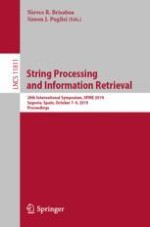2019 | OriginalPaper | Buchkapitel
Position Bias Estimation for Unbiased Learning-to-Rank in eCommerce Search
verfasst von : Grigor Aslanyan, Utkarsh Porwal
Erschienen in: String Processing and Information Retrieval
Aktivieren Sie unsere intelligente Suche, um passende Fachinhalte oder Patente zu finden.
Wählen Sie Textabschnitte aus um mit Künstlicher Intelligenz passenden Patente zu finden. powered by
Markieren Sie Textabschnitte, um KI-gestützt weitere passende Inhalte zu finden. powered by
